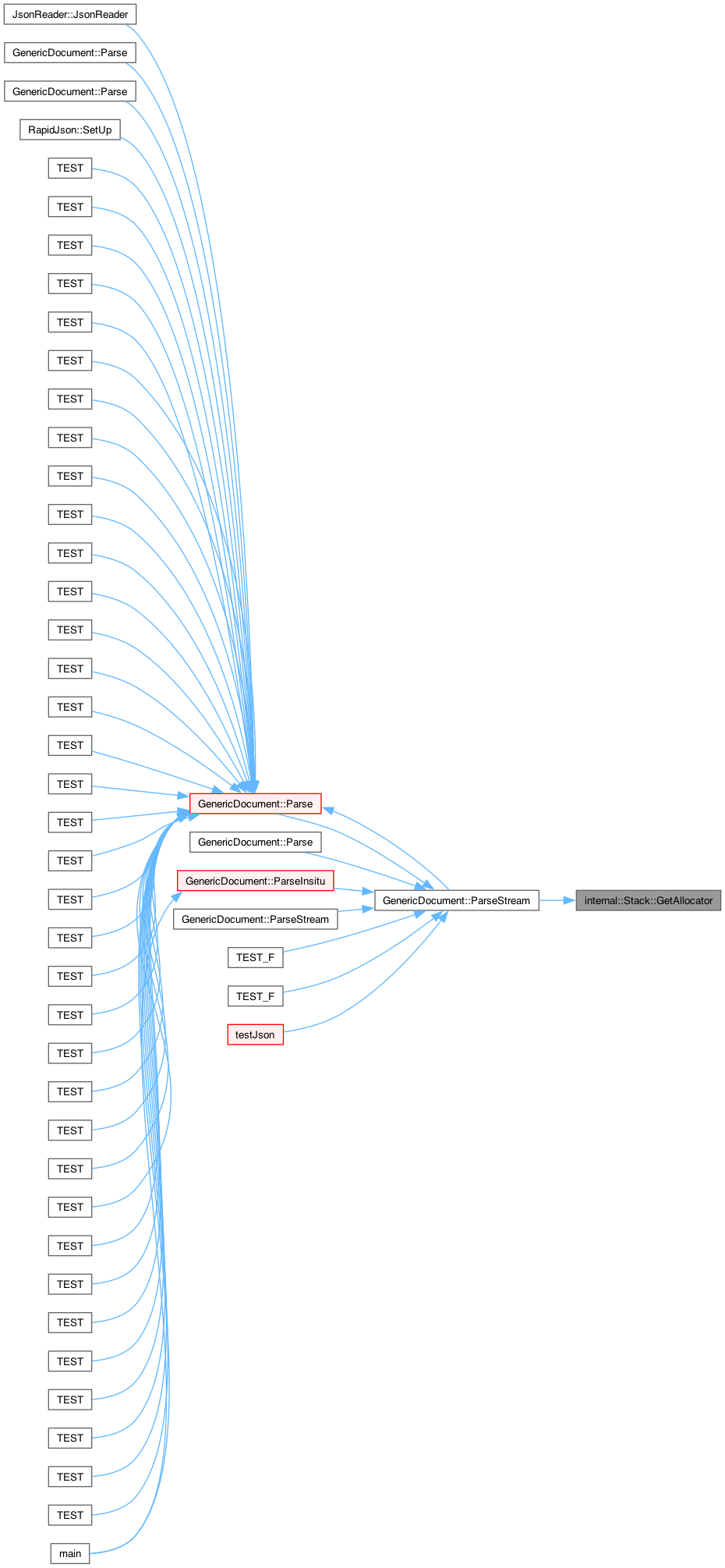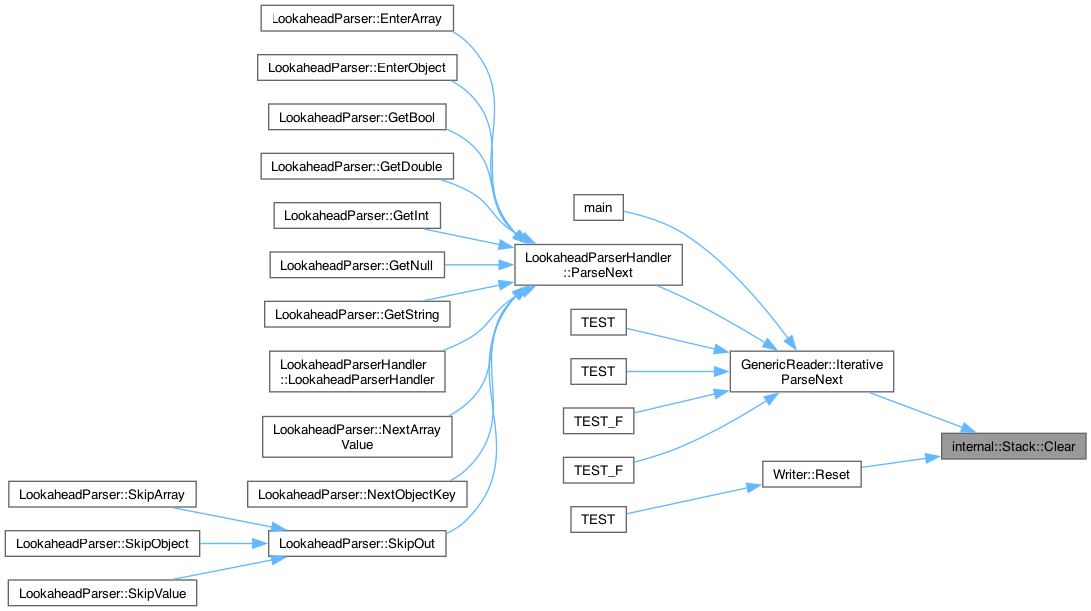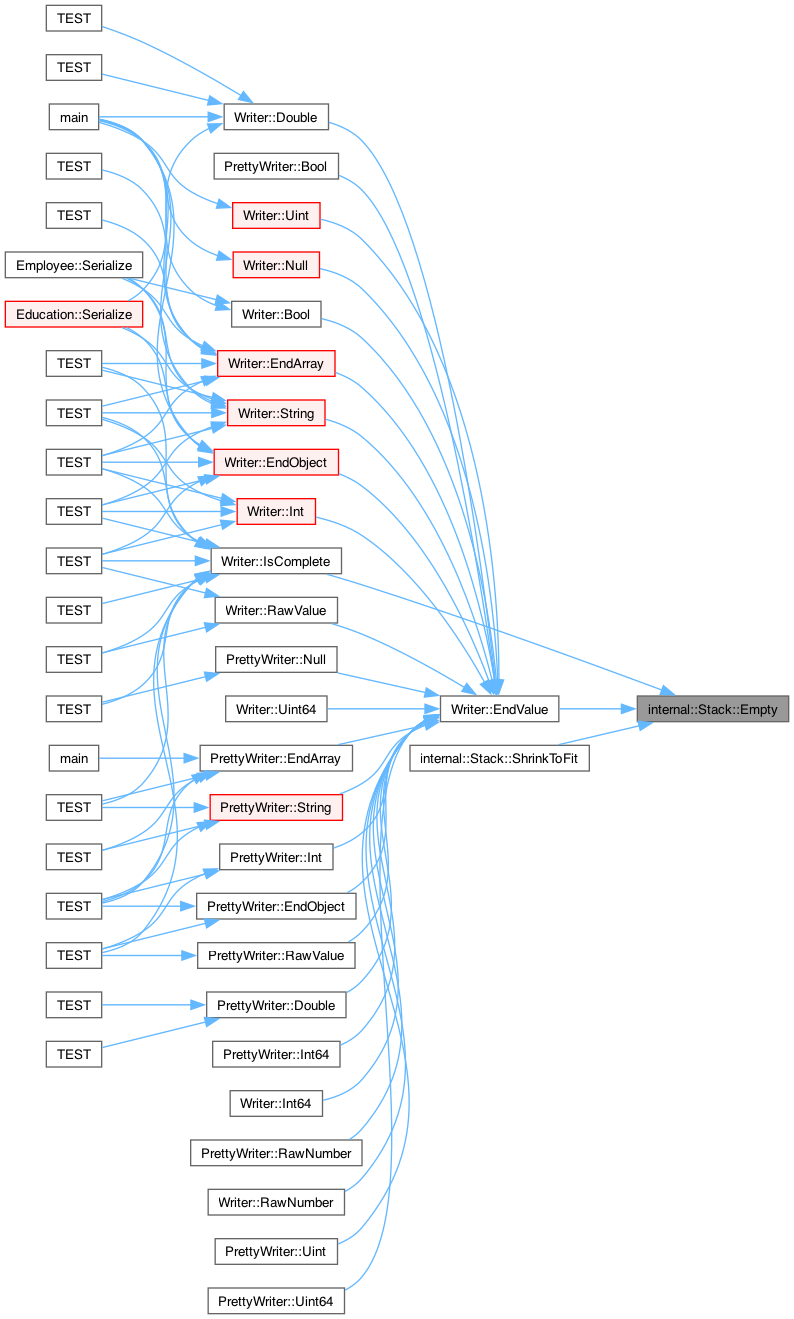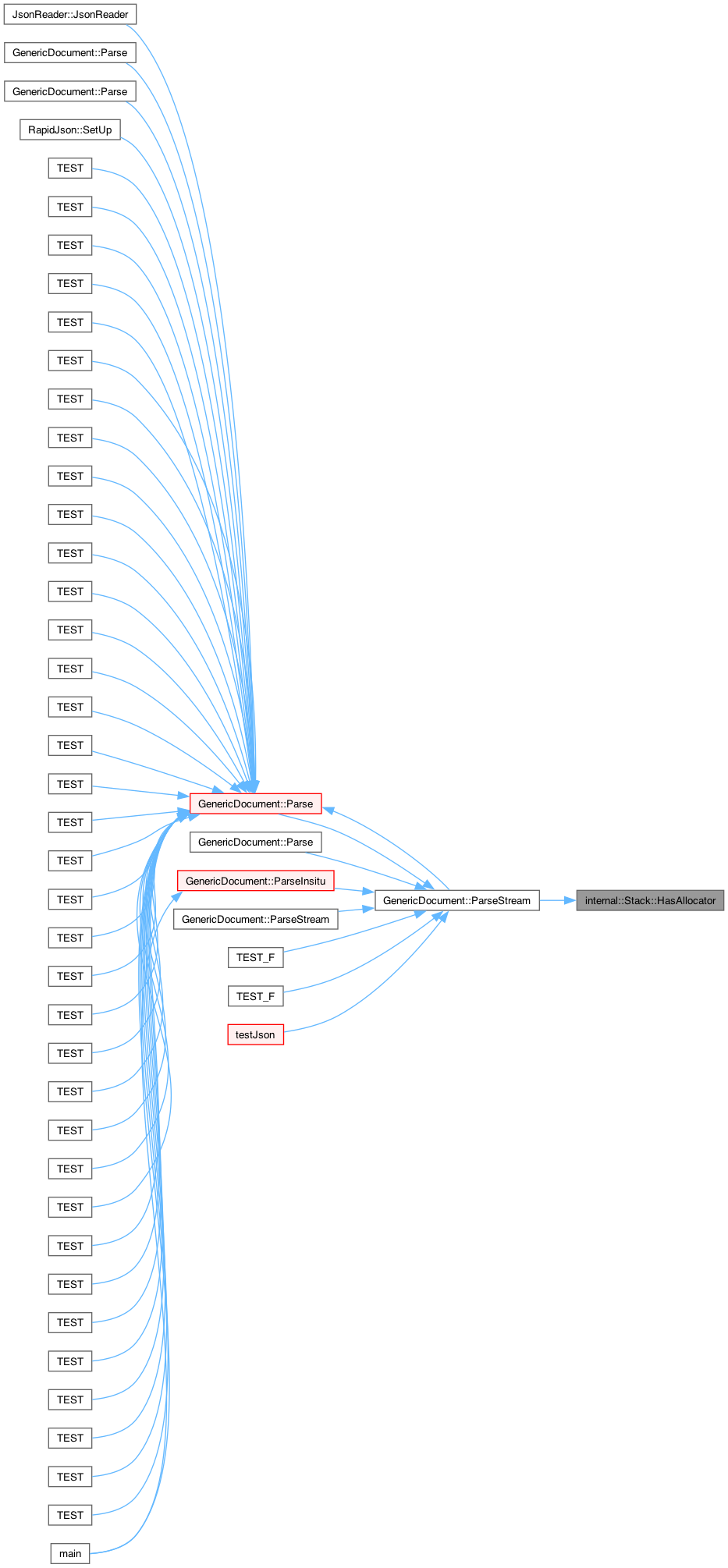Loading...
Searching...
No Matches
internal::Stack< Allocator > Class Template Reference
A type-unsafe stack for storing different types of data. More...
#include <stack.h>
Public Member Functions | |
| Stack (Allocator *allocator, size_t stackCapacity) | |
| ~Stack () | |
| void | Swap (Stack &rhs) RAPIDJSON_NOEXCEPT |
| void | Clear () |
| void | ShrinkToFit () |
| template<typename T > | |
| RAPIDJSON_FORCEINLINE void | Reserve (size_t count=1) |
| template<typename T > | |
| RAPIDJSON_FORCEINLINE T * | Push (size_t count=1) |
| template<typename T > | |
| RAPIDJSON_FORCEINLINE T * | PushUnsafe (size_t count=1) |
| template<typename T > | |
| T * | Pop (size_t count) |
| template<typename T > | |
| T * | Top () |
| template<typename T > | |
| const T * | Top () const |
| template<typename T > | |
| T * | End () |
| template<typename T > | |
| const T * | End () const |
| template<typename T > | |
| T * | Bottom () |
| template<typename T > | |
| const T * | Bottom () const |
| bool | HasAllocator () const |
| Allocator & | GetAllocator () |
| bool | Empty () const |
| size_t | GetSize () const |
| size_t | GetCapacity () const |
Detailed Description
template<typename Allocator>
class internal::Stack< Allocator >
class internal::Stack< Allocator >
- Template Parameters
-
Allocator Allocator for allocating stack memory.
Constructor & Destructor Documentation
◆ Stack()
template<typename Allocator >
|
inline |
◆ ~Stack()
template<typename Allocator >
|
inline |
Member Function Documentation
◆ Bottom() [1/2]
template<typename Allocator >
template<typename T >
|
inline |
◆ Bottom() [2/2]
template<typename Allocator >
template<typename T >
|
inline |
◆ Clear()
template<typename Allocator >
|
inline |
◆ Empty()
template<typename Allocator >
|
inline |
◆ End() [1/2]
template<typename Allocator >
template<typename T >
|
inline |
◆ End() [2/2]
template<typename Allocator >
template<typename T >
|
inline |
◆ GetAllocator()
template<typename Allocator >
|
inline |
Definition at line 172 of file stack.h.
Here is the caller graph for this function:

◆ GetCapacity()
template<typename Allocator >
|
inline |
◆ GetSize()
template<typename Allocator >
|
inline |
◆ HasAllocator()
template<typename Allocator >
|
inline |
◆ Pop()
template<typename Allocator >
template<typename T >
|
inline |
◆ Push()
template<typename Allocator >
template<typename T >
|
inline |
Definition at line 123 of file stack.h.
Here is the call graph for this function:

◆ PushUnsafe()
template<typename Allocator >
template<typename T >
|
inline |
Definition at line 129 of file stack.h.
Here is the caller graph for this function:

◆ Reserve()
template<typename Allocator >
template<typename T >
|
inline |
Definition at line 116 of file stack.h.
116 {
117 // Expand the stack if needed
118 if (RAPIDJSON_UNLIKELY(static_cast<std::ptrdiff_t>(sizeof(T) * count) > (stackEnd_ - stackTop_)))
119 Expand<T>(count);
120 }
#define RAPIDJSON_UNLIKELY(x)
Compiler branching hint for expression with low probability to be true.
Definition rapidjson.h:476
Here is the caller graph for this function:

◆ ShrinkToFit()
template<typename Allocator >
|
inline |
Definition at line 101 of file stack.h.
101 {
103 // If the stack is empty, completely deallocate the memory.
104 Allocator::Free(stack_); // NOLINT (+clang-analyzer-unix.Malloc)
105 stack_ = 0;
106 stackTop_ = 0;
107 stackEnd_ = 0;
108 }
109 else
110 Resize(GetSize());
111 }
Here is the call graph for this function:

◆ Swap()
template<typename Allocator >
|
inline |
Definition at line 90 of file stack.h.
90 {
91 internal::Swap(allocator_, rhs.allocator_);
92 internal::Swap(ownAllocator_, rhs.ownAllocator_);
93 internal::Swap(stack_, rhs.stack_);
94 internal::Swap(stackTop_, rhs.stackTop_);
95 internal::Swap(stackEnd_, rhs.stackEnd_);
96 internal::Swap(initialCapacity_, rhs.initialCapacity_);
97 }
void Swap(T &a, T &b) RAPIDJSON_NOEXCEPT
Custom swap() to avoid dependency on C++ <algorithm> header.
Definition swap.h:33
Here is the call graph for this function:

Here is the caller graph for this function:

◆ Top() [1/2]
template<typename Allocator >
template<typename T >
|
inline |
◆ Top() [2/2]
template<typename Allocator >
template<typename T >
|
inline |
The documentation for this class was generated from the following file:
- libraries/fc/include/fc/crypto/webauthn_json/include/rapidjson/internal/stack.h







